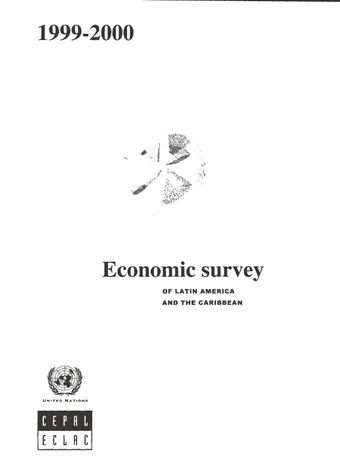Uruguay

- Author: Economic Commission for Latin America and the Caribbean
- Main Title: Economic Survey of Latin America and the Caribbean 1999-2000 , pp 291-298
- Publication Date: December 2000
- DOI: https://doi.org/10.18356/0ce84e19-en
- Language: English
Gross domestic product (GDP) fell by over 3% in 1999 owing to declines in both domestic and external demand and a prolonged drought that cut back agricultural supply. The reversal in the terms of trade caused national income to shrink by 5 % after having posted a 7 % growth rate in 1998. The procyclical nature of the tax regime was one of the factors underlying the expansion of the non-financial public-sector (NFPS) deficit to 3.6% of GDP, while the external current account deficit widened to almost 3% of GDP. This widespread downturn raised unemployment to over 11 % and this, in combination with imported deflation and a slowdown in monetary expansion, held domestic price increases to just 4%, the lowest figure in the last 50 years.
© United Nations
ISBN (PDF):
9789210582957
Book DOI:
https://doi.org/10.18356/afad20d5-en
Related Subject(s):
Economic and Social Development
Sustainable Development Goals:
Countries:
Uruguay
-
From This Site
/content/books/9789210582957s003-c019dcterms_title,dcterms_subject,pub_keyword-contentType:Journal -contentType:Contributor -contentType:Concept -contentType:Institution105
/content/books/9789210582957s003-c019
dcterms_title,dcterms_subject,pub_keyword
-contentType:Journal -contentType:Contributor -contentType:Concept -contentType:Institution
10
5



